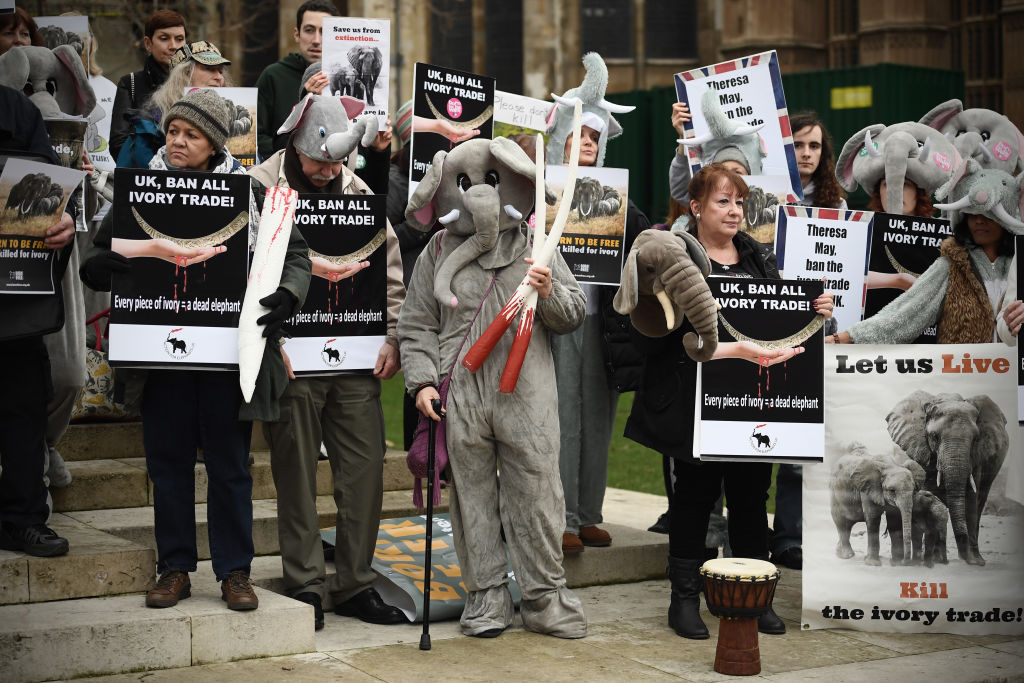
The UK government plans to ban the sale of ivory of any age, making fewer exemptions than the US or China.
The Environment Secretary Michael Gove called the planned legislation “one of the world’s toughest bans on ivory sales to protect elephants for future generations.” Anyone caught breaking the law will face up to five years in prison or an unlimited fine.
He was speaking after the publication of a consultation that received 70,000 responses (one of the largest ever). Around 88 percent were in favor of an outright ban on the ivory trade.
Members of the antique trade lobbied hard to avoid a total ban, arguing that banning the sale of historic items will do nothing to stop poaching in Africa, an ongoing black-market epidemic of slaughter that kills more than 50 elephants a day.
Under the UK’s incoming ban, exemptions will be made for musical instruments containing less than 20 percent ivory made prior to 1975 as well as items with an ivory content of less than 10 percent by volume made prior to 1947. Also exempt will be portrait miniatures dating to at least 100 years prior to the new laws.
Certain museums will be allowed to buy or loan ivory items and display works with historic, artistic, and cultural value. Finally, antiques that are made of ivory but that have “high artistic, cultural, or historical value” will be permitted to be traded. Select institutions, which are still to be determined, would provide a permit.
Elephants carved from illegal Ivory on display at the Endangered Species exhibition in London in 2011. Photo by Dan Kitwood/Getty Images.
International trade in ivory is banned with the exemption of items that can be dated back to the 1970s, before elephants were given official protection. Yet the continued rise in the trade indicates that this exemption was used as a loophole for illegal trading. The US introduced an ivory ban in 2016, exempting items that were older than a hundred years, but these could be made with up to 50 percent ivory.
The European Commission tightened its rules last July in an attempt to close this legislative loophole, and last October they invited individuals and organizations to submit further proposals to crack down on trafficking. Nearly 90,000 responses were received and have been shared publicly. The European Union as a whole is the largest exporter of ivory in the world, and there are currently no permits or certificates needed to trade antique ivory and any needed documents can be easily forged. On the heels of the UK’s announcement, conservationists are putting increased pressure on Brussels to address the continent’s rampant ivory trade with a stricter ban.
According to a trade analysis shared by the Guardian last year, the UK was the world’s largest legal exporter of ivory between 2010 and 2015. The largest growing market for ivory is in Asia and, according to the report, the UK was the top exporter to China and Hong Kong between those measured years.
Mainland China introduced a ban on ivory trading as of December 31, 2017, closing down carving workshops and factories but allowing the sale of “relics.” Hong Kong announced an end to its market in 2021.